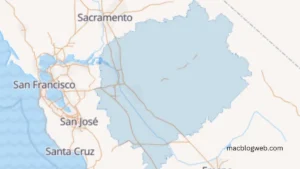In a world where data is increasingly crucial, technologies like artificial intelligence (AI) and blockchain have become pivotal. Individually, each offers unique capabilities—AI in processing and learning from data, and blockchain in securing and decentralizing data transactions. Alaya AI emerges as a visionary platform at the intersection of these technologies, aiming to revolutionize how data is managed and utilized within AI development. This detailed exploration examines Alaya AI’s architecture, functionality, and the transformative impact it promises across industries.
The Convergence of AI and Blockchain
Alaya AI is built on the principle that integrating AI with blockchain technology can create a system that is not only smart but also inherently secure and transparent. This fusion addresses fundamental challenges faced by traditional AI systems, primarily concerning data security, privacy, and integrity. By decentralizing data management, Alaya AI ensures that the data used for AI training is immutable, traceable, and verifiable across its lifecycle.

Understanding Alaya AI’s Decentralized Framework
Architecture and Design
At its core, Alaya AI operates on a decentralized network that leverages blockchain to maintain a secure and transparent environment. This structure is fundamentally different from centralized AI systems, where data and decision-making processes are controlled by a single entity. AI’s blockchain backbone ensures that all transactions, whether they are data exchanges, training events, or validation occurrences, are recorded on a decentralized ledger, providing an auditable trail.
Token-Based Economy
Alaya AI introduces a token-based economic model which is integral to its operation. Users of the platform earn ALA tokens by contributing to various tasks such as data labeling, model training, and validation. These tokens not only incentivize participation but also help maintain the quality and reliability of the data and AI models developed on the platform. ALA tokens can be utilized within the ecosystem for accessing premium services or traded on external cryptocurrency exchanges.
Key Features and Functionalities
Data Labeling and Validation
One of the significant features of Alaya AI is its approach to data labeling and validation. In traditional settings, these tasks can be tedious and error-prone. Alaya AI decentralizes these processes, allowing a diverse pool of contributors to participate, which not only speeds up the process but also helps in achieving more accurate and unbiased data sets.

Model Training and Deployment
Alaya AI provides a robust environment for training AI models. Leveraging distributed computational resources, the platform facilitates efficient model training without the bottlenecks associated with centralized systems. Once trained, models can be deployed directly from the platform, with all activities recorded on the blockchain to ensure compliance and traceability.

Security and Privacy
With its blockchain integration, Alaya offers enhanced security features. Data on the platform is encrypted and fragmented, ensuring that it cannot be accessed by unauthorized parties. Furthermore, the immutable nature of blockchain means that any attempt to alter data maliciously can be easily detected and reverted.

Impact of Alaya AI on AI Development
Enhanced Transparency and Trust
The transparency inherent in blockchain technology means that all activities on the Alaya AI platform can be traced and verified. This transparency builds trust among users, developers, and stakeholders, as it ensures that the data used and the AI models developed are both secure and reliable.
Decentralized Data Governance
Alaya AI introduces a decentralized approach to data governance, which is particularly beneficial in sectors like healthcare and finance, where data sensitivity is a major concern. This approach ensures that no single entity has control over the data, thus mitigating risks related to data breaches and misuse.
Economic Opportunities
By monetizing tasks such as data labeling and model training through ALA tokens, Alaya creates new economic opportunities for individuals and businesses. This token-based economy can also help democratize AI, making advanced AI tools and models accessible to a broader audience.
Challenges and Considerations
While Alaya AI presents numerous advantages, there are challenges to consider, including the scalability of blockchain networks, energy consumption concerns related to blockchain technology, and the legal and regulatory implications of token-based economies.
Conclusion
Alaya AI stands out as a transformative platform that redefines the integration of AI and blockchain. By offering a decentralized, secure, and transparent system, it addresses many of the challenges faced by traditional AI systems. As the platform evolves, it could potentially lead to a new paradigm in how AI is developed and deployed, fostering more collaborative and trustworthy AI applications across various sectors.








